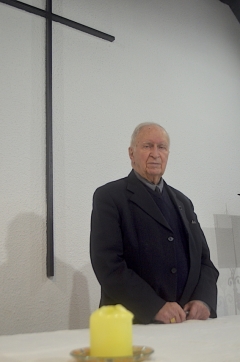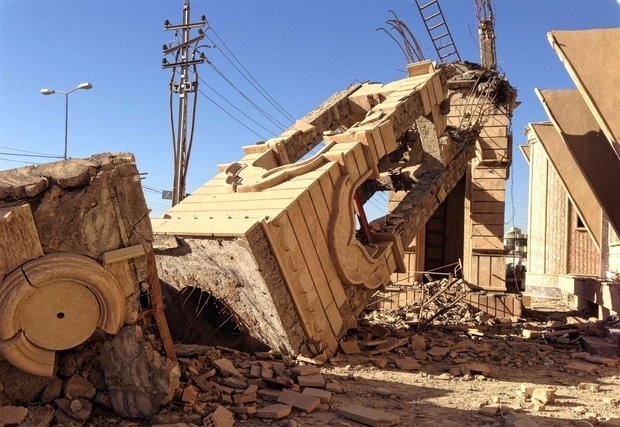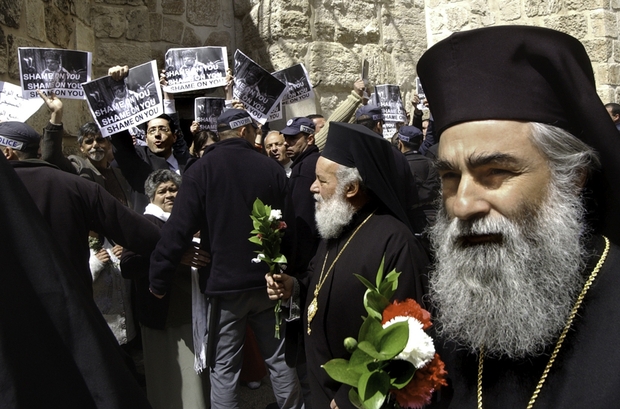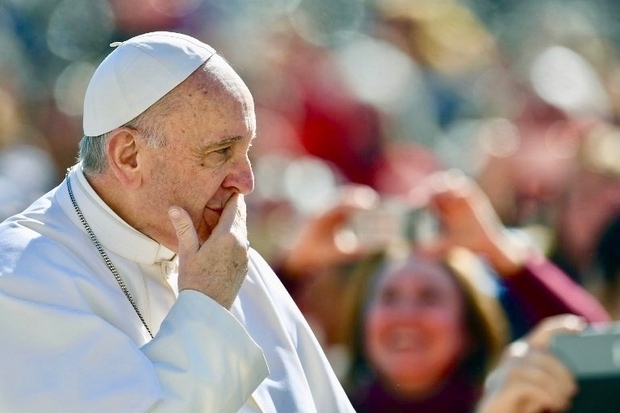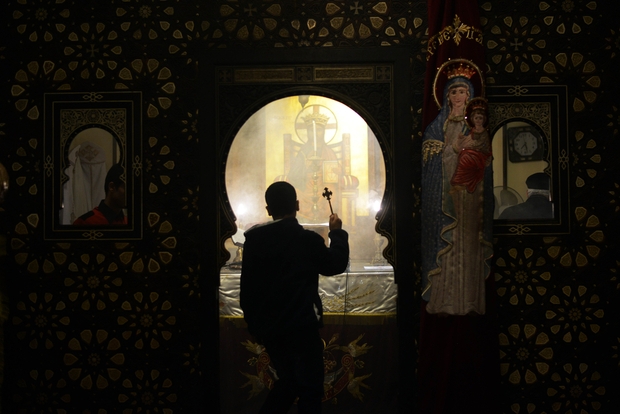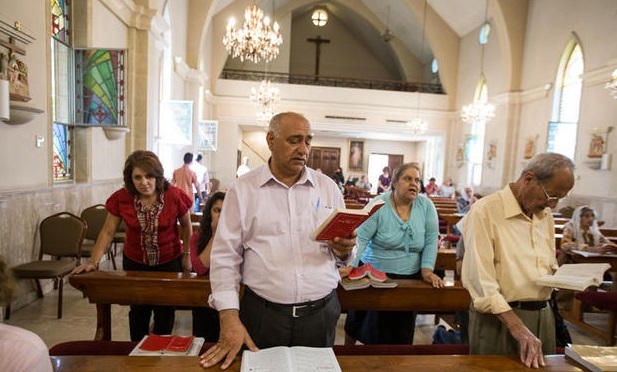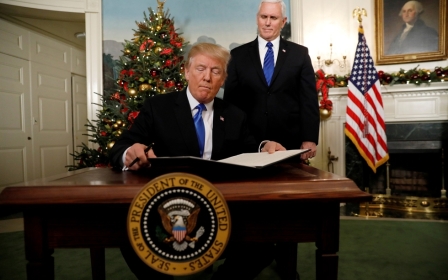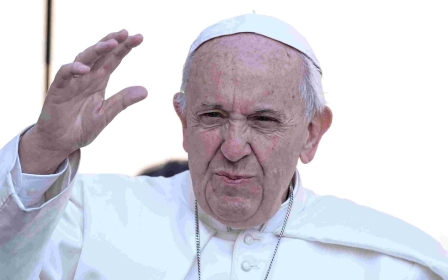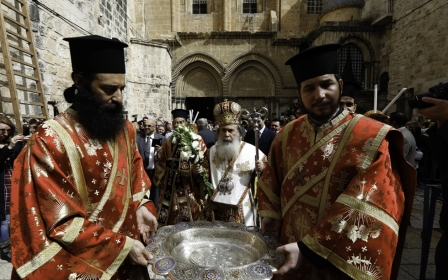Former archbishop of Algiers reflects on a difficult year for Christians in the Middle East

ALGIERS – Henri Teissier has spent most of his life working to build better relations between the Maghreb and the Middle East.
After moving to Morocco with his family in 1946, he earned a degree at the University of Cairo and then went on to co-direct the Catholic non-profit relief organisation Caritas in the Middle East and North Africa, during the Lebanese civil war.
Now retired, Teissier still calls Algeria home and takes as keen an interest as ever in the current affairs of the Middle East and North Africa.
Ahead of Christmas, he met with the Middle East Eye to discuss the situation of Christians in the Middle East.
MEE: The attacks on Egypt’s Copts, the Islamic State (IS) group’s persecution of Christians in Iraq and Syria, not to mention the attacks in Pakistan and Eritrea... This year again, Christians have been subjected to violence, irrespective of where they live.
HT: Violence [against Christians] is related to specific national dynamics and is not simply a desire to lash out at Christians.
In Syria, the violence resulted from tensions between pro-government forces and movements for democratic reform. In Iraq, the spread of IS and the collapse of the Sunni-minority government, in favour of Shias, is what precipitated a wave of Sunni extremism.
But the attacks on Christians we are seeing today only started after IS had made them part of their programme of radicalisation. So Christians are now being subjected to violence, along with the Shias and the supporters of Bashar al-Assad.
In many respects, the situation is similar to that of Algeria in the 1990s. The armed groups only attacked Christians of European descent. The Christians from the Middle East and sub-Saharan Africa, who were also present in the country, were left alone.
In Algeria, the attacks led to closer ties between the Christians and other communities. I’d say the same thing is happening today in Syria and Iraq. People are aware of the historical rights of Christians, who make up part of their countries’ heritage.
MEE: Jerusalem has received a lot of media attention of late. Pope Francis has called for respect of the status quo. What are your views on the current situation?
HT: All of these problems stem directly from what happened after 1948, when the state of Israel was founded. What I mean to say is Donald Trump’s recognition of Jerusalem as the capital of Israel is just one more episode in the ongoing dispossession of the Palestinian people.
For Jerusalem to be seen as the symbol of inter-faith conflict is totally at odds with message of hope offered to all those who claim to be the faithful of God.
MEE: In December, King Abdullah II of Jordan met with the pope. Where does the Vatican stand on diplomatic relations with the Middle East?
HT: Diplomatic relations are part of the pope’s commitment, as a Christian, to work towards peace. The pope also visited the active war zone of Bangui, in the Central African Republic, where most Muslims have been forced to flee.
As for Palestine, the pope’s stance stems from those reasons mentioned earlier [Jerusalem is symbolic of God’s promise of peace and justice], but also from the region’s historical significance as the birthplace of Jesus and Christianity: Christ was born in Bethlehem, he grew up in Nazareth, recruited his apostles on the shores of Lake Tiberias, and was crucified in Jerusalem.
MEE: In view of the wars, the inflammatory discourses, and the insanity that seems to have taken possession of certain leaders, is it still possible today to deliver a message of peace, hope and love?
HT: We must distinguish between the extremists, who advocate the use of violence, and the people who interact with minority groups in their daily lives.
We deeply respect those Christians who have chosen to remain in Iraq and Syria despite the danger, and we must not let the violence of fringe groups drive us out. Even today, there is a bishop in Libya, in Tripoli.
Again, take Algeria in the 1990s: if we had left Algeria when the Armed Islamic Group sent us a letter in October 1993 ordering us to leave, there would be no Christians left in Algeria today.
These communities have to go on living together. The future of Christian-Muslim relations is being played out in the Middle East.
MEE: Another major issue in the past year - and no doubt one that will play out in the coming year as well - is the question of migrants, on which the pope has released several statements. What can the church do to promote human values in the face of the security-driven immigration policies of Europe?
HT: On 1 January 2018, the pope will publish his annual New Year’s message of peace. Eight pages of this year’s letter will address the situation of migrants and refugees and call for the respect of the rights of all human beings. However, I cannot disclose any specifics prior to the letter’s official publication.
MEE: In October, the Algeria Press Service announced that the 19 Catholic clergy members assassinated in Algeria during the 1990s, including the monks of Tibhirine, were in the process of being beatified. Can you tell us little more about this?
HT: In Algeria in the 1990s, the diocese of Algiers lost 10 percent of its priests, clergy and nuns. There were 190 of us then, and 19 people were killed.
If these martyrs are beatified, however, it will not be because they were assassinated – remember, some 200,000 people were killed. If they are sanctified, it will be for having remained in place to faithfully serve the Algerian communities, who were aware of how precious their commitment was.
A case in point is that the Armed Islamic Group, when they decided to kidnap the monks of Tibhirine, had to call in fighting units from another region, because the local militia refused to attack the monastery.
MEE: The Pope, who turned 81 on 17 December, urged pilgrims to ‘always remain in joy, even when things do not go according to our desires’. What would your Christmas message be?
HT: Christmas is usually associated with peace. The Gospel tells us, on the authority of those words sung over the cradle of baby Jesus: "Peace on earth to those whom God loves."
We celebrate the coming of our Lord in the form of a child, worshipped by nearby shepherds, because we feel a greater desire for peace before an infant than we do before a man in armour.
There can be no future if we are unable to establish peace between nations
One of my most cherished memories goes back to when I was the bishop of Algiers. At the time, I had to deliver a Christmas sermon for Algerian radio. Naturally, most of my listeners were Muslims, who would discuss the sermon with me afterwards.
You have to remember that this was in the 1990s, when there were dozens of terrorist attacks every week. But despite the risks, journalists in Algeria continued to talk to me, refusing to give into violence though they were easy targets.
This is the kind of peace we need to see today. There can be no future if we are unable to establish peace between nations.
Scientists now agree that the African continent is the cradle of humanity, that Africa is the continent from which we all set forth.
So I am happy to speak to you here, on the continent of Africa, fully aware that I am a white man of black descent.
New MEE newsletter: Jerusalem Dispatch
Sign up to get the latest insights and analysis on Israel-Palestine, alongside Turkey Unpacked and other MEE newsletters
Middle East Eye delivers independent and unrivalled coverage and analysis of the Middle East, North Africa and beyond. To learn more about republishing this content and the associated fees, please fill out this form. More about MEE can be found here.


